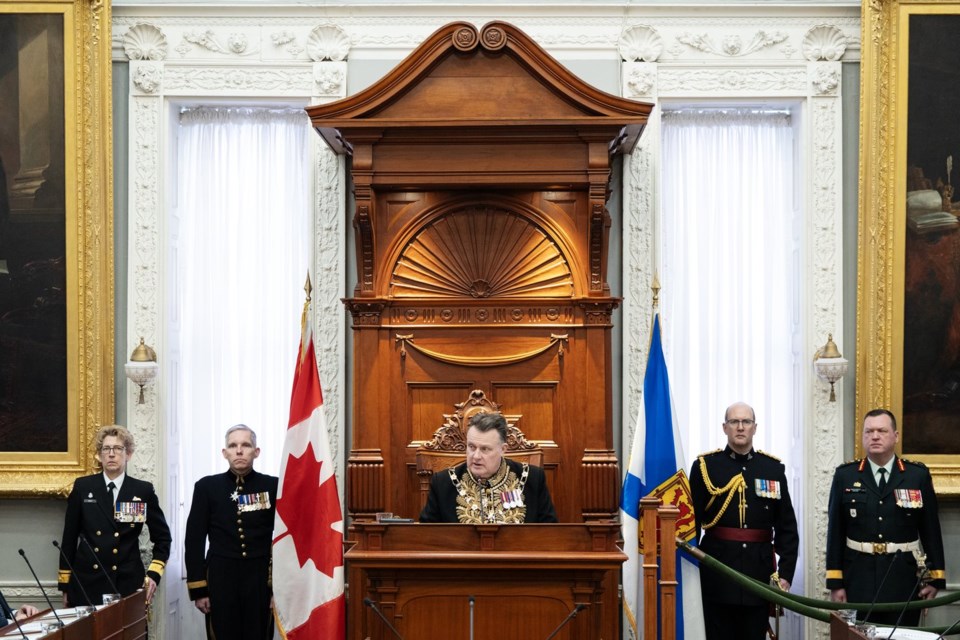HALIFAX — The looming threat of tariffs by the United States is a “wake-up call” for the Nova Scotia economy, the provincial government said Friday in a throne speech to open a new sitting of the legislature.
The Progressive Conservative government’s speech was read by Lt.-Gov. Mike Savage — his first since being installed in December.
“If we want to be ready to face tariffs or any future economic threat, we need to build an economy that is independent, resilient and resource focused,” the government said in the speech.
U.S. President Donald Trump has threatened to impose 25 per cent tariffs on Canadian goods in March, and Premier Tim Houston has warned that such a move would threaten jobs in the agriculture, fishery and manufacturing sectors.
In the throne speech, the government signalled it is ready to go all in on resource exploitation to help spur economic growth. In particular, the Tories pledged to work harder to develop the potential of hydrogen, offshore wind, and critical minerals, resources the government says can add a combined $16 billion to Nova Scotia’s economy.
The Tories pledged to introduce modern regulations that would make it easier to exploit resources and also protect the environment.
Meanwhile, the government continued to develop a theme Houston had been pitching ahead of the legislative sitting — that unnamed “special interests” have been hindering the province’s economic potential. “Giving groups vetoes that impoverish our fellow Nova Scotians will no longer be tolerated,” the speech says. “We must not let special interests polarize our province.”
The speech makes six separate references to special interests or to groups the Tories say are trying to hinder efforts to grow the province’s economy, something that wasn’t lost on Opposition NDP Leader Claudia Chender.
Chender said that theme is consistent with how the government has created enemies in the recent past.
“That enemy was (Prime Minister) Justin Trudeau and now that enemy is special interests, and special interests are whoever happens to disagree with them,” Chender told reporters, while stressing her party believes the government should be prioritizing unity instead of looking for conflict.
She also expressed concern about the government’s stated intent in the speech to lift existing bans on exploiting certain resources. Those bans include fracking for oil and gas, and mining uranium. “We need to look at economic development … I think we need to have a conversation about that first and then we need to determine how to go forward."
Interim Liberal leader Derek Mombourquette also dismissed the idea that special interests are deterring growth, saying the government’s charge “makes no sense.” The Tories should be focusing on helping the entire economy, not just the resource sector, Mombourquette said.
“Resource development doesn’t happen overnight,” he said. “You need to be looking at our (skilled) trades and setting the conditions for business to want to come here.”
The throne speech follows the resounding win by the Tories in November’s provincial election that saw them capture 43 of the legislature’s 55 seats. More details on the government’s immediate agenda is expected to be laid out in the 2025-26 budget, which is scheduled to be tabled on Tuesday.
This report by The Canadian Press was first published Feb. 14, 2025.
Keith Doucette, The Canadian Press



